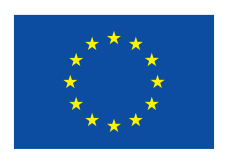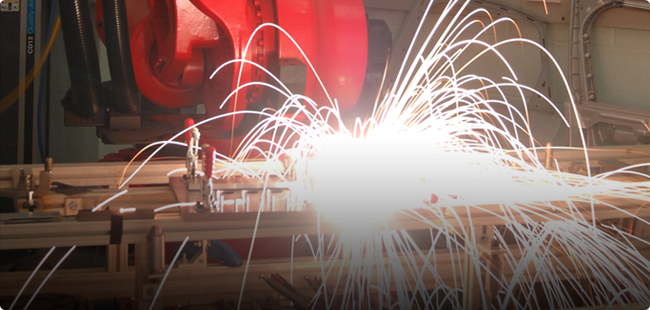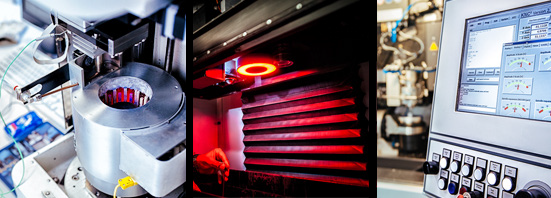rEUman
Digitally-enhanced multi-level solution for smart human-centric remanufacturing


Manufacturing
The initiative aims at developing and demonstrating a novel paradigm of human-centric remanufacturing approach for the European industry, acting at value-chain and factory levels, that is:
The European remanufacturing industry is crucial for the sustainable transition of Europe, thanks to the savings in energy, materials and functionality that is guaranteed by the process. In fact, the socioeconomic benefits of remanufacturing, in terms of number of workers, skills development and technological uptake, are as impactful as the environmental benefits. rEUman aims at developing and demonstrating a novel paradigm of human-centric remanufacturing approach for the European industry; acting at factory and value-chain levels. At factory level, the main industrial need is to guarantee high regeneration rates of the remanufactured products and to achieve traceability of the remanufacturing process-chain. While at value-chain level, the main industrial need is to guarantee stability in terms of volume and quality of the post-use products. rEUman shall demonstrate the new remanufacturing paradigm, which is intrinsically human-safe, target-driven in regeneration and certification, flexible while facing variability in post-use parts, robust and replicable to new circular business cases. To that end, rEUman addresses the call topic by (i) developing cutting edge remanufacturing approaches (factory level) and integrating them into the value-chain , (ii) demonstrating functional retention in three sectors (Automotive, Home appliances and Optoelectronics), (iii) introducing traceability in remanufacturing by implementing the first remanufacturing-centred DPP, (iv) considering operation and economic viability by showcasing complete business cases coupled with designed training material.
The initiative is set to transform the European remanufacturing industry by addressing its current limitations and setting new standards for human-centric innovation. It aims to develop and demonstrate a novel remanufacturing paradigm which is inherently safe for humans, target-driven in regeneration and certification, flexible in handling post-use parts variability, and robust for replication in new circular business cases. To achieve these objectives, rEUman partners will develop cutting-edge remanufacturing approaches and integrate them into the value chains.
EnginSoft is responsible for two essential activities within the rEUman project. First, we lead the creation of a digital tool integration and optimization suite designed to optimize factory setups during the design or redesign phases for remanufacturing. This tool enables stakeholders to explore a range of setup options, identify optimal configurations, and achieve performance goals aligned with their priorities. The suite enhances decision-making and streamlines processes, contributing to more efficient and sustainable remanufacturing practices.
Second, to address the skills gap in remanufacturing, EnginSoft identifies critical competencies and existing gaps to design effective training methodologies and materials. We spearhead the launch of the APRA Academy, providing future adopters with the knowledge and skills necessary to implement the project’s solutions effectively, ensuring their long-term applicability and success.
POLITECNICO DI MILANO | KARLSRUHER INSTITUT FUER TECHNOLOGIE - KIT | HUN-REN SZAMITASTECHNIKAI ES AUTOMATIZALASI KUTATOINTEZET - HUN-REN SZTAKI | FLEXIS | SIMPLAN | BORG AUTOMOTIVE SP ZOO | HEPENIX MUSZAKI SZOLGALTATO KFT - HEPENIX Technical Service | KNORR-BREMSE SYSTEME FUR NUTZFAHRZEUGE | ARCELIK A.S. | OLIMPIA SPLENDID | SYXIS VSI | ENGINSOFT | AUTOMOTIVE PARTS REMANUFACTURERS ASSOCIATION EUROPE - APRA Europe | LUMIBIRD PHOTONICS ITALIA | CORE KENTRO KAINOTOMIAS AMKE - CORE IC | META CIRCULARITY, SVETOVANJE IN INOVACIJE DOO - META Circularity, advisory and innovation | C.R.& C. | CARL ZEISS AG
Funding Scheme Horizon Europe | Call identifier HORIZON-CL4-2023-TWIN-TRANSITION-01, Grant Agreement No 101138930


48 months
September 2024 – August 2028
POLITECNICO DI MILANO
Anteneh Teferi Yemane
20

Some of our competences in research and technology transfer
Research project
YOGA sviluppa una piattaforma semiautomatizzata e standardizzata rivolta a qualsiasi laboratorio clinico impegnato nella caratterizzazione dei tessuti da biopsia quando il materiale disponibile è molto poco.available.

Research project
RLW is emerging as a promising joining technology for sheet metal assembly due to benefits on several fronts including reduced processing time, (50-75%) and decreased factory floor footprint (50%), reduced environmental impact through energy use reduction (60%), and providing a flexible process base for future model introduction or product change.

Research project
The project "TEMART - Technologies and materials for artistic manufacturing, Cultural Heritage, furniture, architectural and urban design and the design of the future" aims to improve the products of the above-mentioned sectors (functionality and aesthetics) by applying the different technologies available from the M3NET Regional Innovation Network.